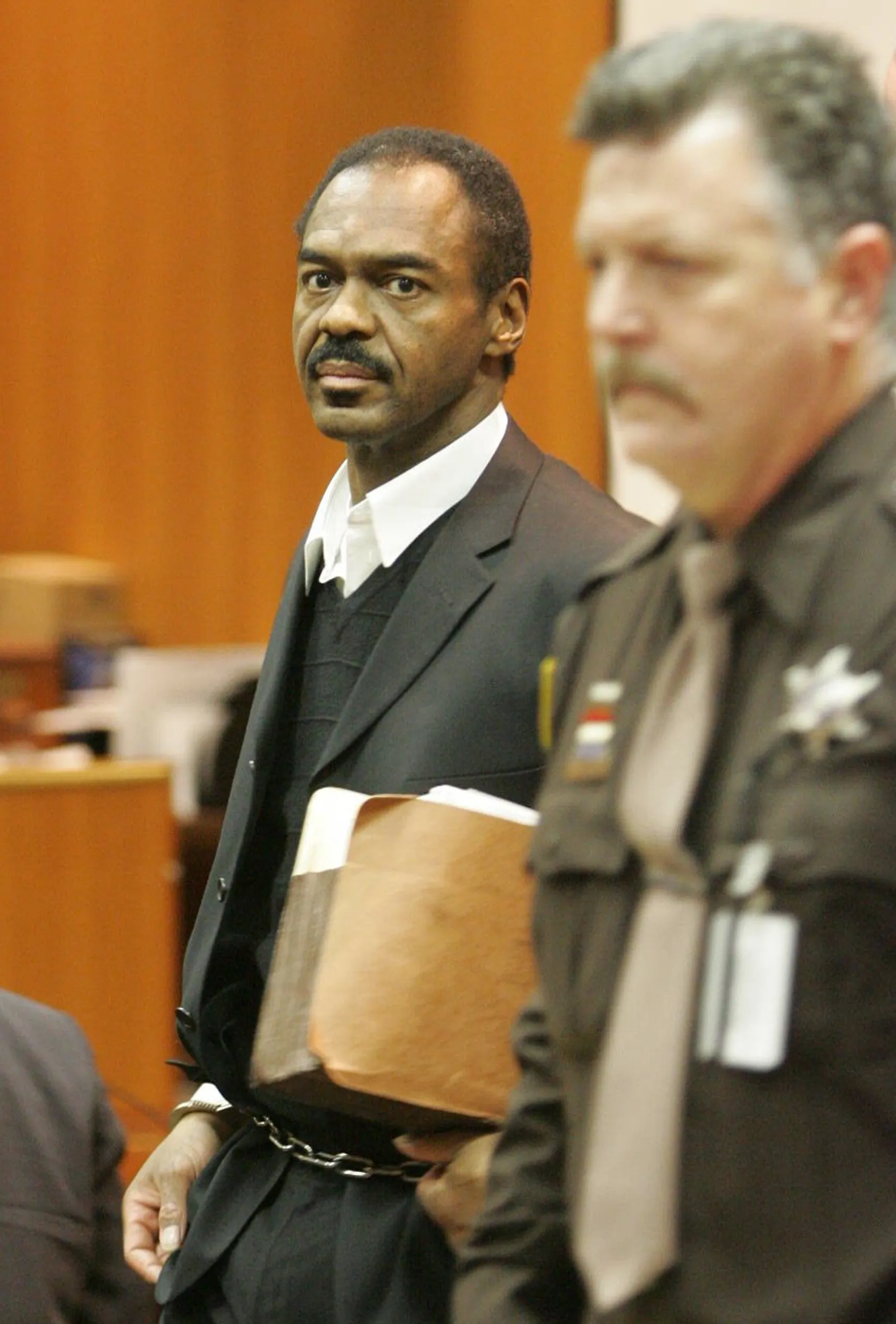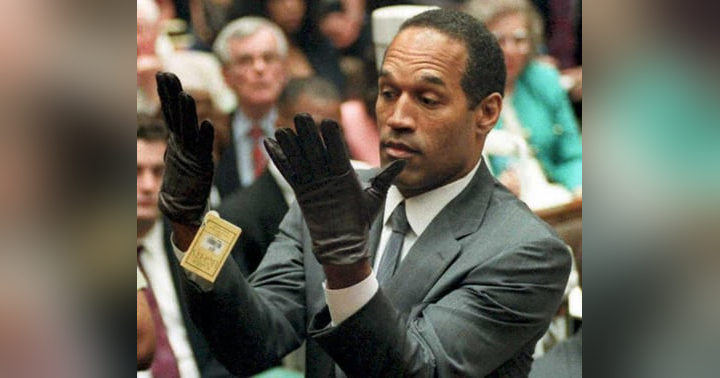The Sunday Morning Slasher: Carl Watts and the Deal That Almost Set Him Free

When Carl Eugene Watts was caught red-handed trying to drown a woman in her own bathtub, Houston police thought they had him dead to rights. So they made a deal: he'd confess to twelve murders in exchange for complete immunity. What could go wrong? Well, as it turns out, pretty much everything. Because twenty-four years later, Carl was about to walk free, and authorities realized they'd made a bargain with someone who may have killed over a hundred women.
When Everything Goes Wrong from the Start
You know how sometimes people try to explain away terrible behavior by pointing to a rough childhood? Well, Carl Eugene Watts had pretty much every textbook example of childhood trauma you could think of. Born in 1953 in West Virginia, Carl's early years read like a psychology case study waiting to happen.
His father was one of those stern military types who probably thought showing emotion was a sign of weakness. When Carl was young, his parents divorced, leaving him in that classic single-mother household situation. Then, because life apparently wasn't complicated enough, his mother remarried and started having more children. Carl watched his place in the family hierarchy shift, and jealousy began to fester.
Now, millions of kids grow up with divorced parents, military fathers, and blended families without becoming serial killers. These circumstances alone don't create monsters. But there was something fundamentally different brewing in Carl's brain, something that would take these ordinary childhood struggles and twist them into something far more sinister.
The Illness That Changed Everything
When Carl was eight years old, life threw him another curveball that would prove to be absolutely devastating. He and his younger sister both contracted meningitis, which was basically a death sentence back in the early 1960s. Even today, meningitis can kill you, but medical treatment has come a long way since then.
His sister bounced back relatively quickly, the way kids sometimes do. But Carl? Carl was fighting for his life. The hospital had to isolate him from other patients because his condition was so severe. He endured multiple spinal taps, which if you've never had one, involves a doctor sticking a needle into your spine to extract fluid. It's exactly as pleasant as it sounds.
His body temperature spiked so high for so long that doctors worried it might cause permanent brain damage. And here's where the story takes a turn that his family would never forget: when Carl finally recovered and came home from the hospital, he wasn't the same kid who had left.
The Transformation Nobody Saw Coming
Carl had never been what you'd call an academic superstar, but after the meningitis, his performance in school went from bad to worse. He had to repeat a grade, which is always a confidence crusher for any kid. But the changes went deeper than grades.
The outgoing, somewhat normal eight-year-old had transformed into this quiet, shy, introverted child who seemed to exist in his own world. His family noticed the personality shift immediately, but they figured it was probably normal after such a traumatic illness. Kids change, right? Sometimes they grow out of phases.
Except Carl didn't grow out of this one.
That's when the nightmares started.
Dreams That Became Obsessions
At first, these weren't your typical childhood nightmares about monsters under the bed or scary movies. Carl's dreams were disturbingly specific: he would be attacked by evil women, or he would have to fight them off. The content was violent and disturbing enough that he would wake up screaming, begging for help from anyone who would listen.
His family probably thought this was another side effect of his illness, maybe some kind of trauma response. They likely expected the nightmares to fade with time, the way most childhood fears do. But something unprecedented started happening instead.
Carl began looking forward to these dreams.
By the time he turned twelve, he had stopped calling them nightmares altogether. Now they were dreams, and he had started fantasizing about making them reality. He would follow girls around his neighborhood, watching them, studying them, and mentally rehearsing the violent scenarios that played out in his sleep.
This is where the story gets genuinely terrifying, because Carl was developing what psychologists call violent fantasy rehearsal. He wasn't content to keep these thoughts in his head anymore.
The Paper Route That Opened Doors
When Carl turned fifteen, he got himself a paper route. On the surface, this seems like a normal teenage job, the kind of responsibility that builds character. But for Carl, it represented something entirely different: access.
A paper route meant he had a legitimate reason to knock on doors, to interact with strangers, to scope out homes and learn people's routines. It was the perfect cover for someone with darker intentions.
In the summer of 1969, Carl knocked on the door of twenty-six-year-old Joan Gave's home. When she answered, he didn't deliver a newspaper. Instead, he barged into her house and unleashed years of pent-up violence, beating and kicking her before leaving as if nothing had happened.
Joan immediately called the police, because obviously. Carl was arrested, but everyone involved was completely baffled. He was fifteen years old with no history of violence. His family couldn't understand it. The authorities couldn't understand it. Even Carl probably couldn't fully articulate why he had done it.
What the Doctors Found
During his psychiatric evaluation, doctors discovered that Carl suffered from what they termed a "delusional thought process" and had a learning disability. His IQ tested at 75, which put him right on the borderline of intellectual disability. The cutoff for being classified as mentally disabled was 70, so Carl was functioning, but barely.
He underwent treatment for a year, during which time he discovered that exercise helped him manage his anger and the disturbing feelings his dreams continued to generate. This newfound dedication to fitness actually paid off in an unexpected way: he earned a football scholarship to Lane College.
Here was Carl's chance to turn his life around. A fresh start, a new environment, an opportunity to channel his energy into something productive. It lasted exactly three months.
College: A Hunting Ground
Carl couldn't help himself. Even on campus, surrounded by structure and supervision, he continued stalking and assaulting women. The college reprimanded him multiple times, but the behavior escalated rather than improved.
When a female student was found brutally murdered, stabbed thirty-three times, Carl became the prime suspect. There wasn't enough evidence to charge him, but Lane College had seen enough. They used his documented pattern of behavior toward women as grounds for expulsion.
So Carl transferred to Western Michigan University, and that's when things got exponentially worse.
The Sunday Morning Slasher
Ann Arbor newspapers started calling him The Sunday Morning Slasher because he had developed a disturbing pattern: he almost always struck in the early hours of Sunday morning. There's something particularly unsettling about that timing, isn't there? Sunday mornings are supposed to be peaceful, reflective, safe.
Carl's attacks were lightning-fast and seemingly random. In one instance he later confessed to, he turned a corner, stabbed a woman directly in the heart, and walked away. The entire encounter lasted less than fifteen seconds. That level of efficiency is absolutely chilling.
He left behind minimal evidence and targeted women ranging in age from fourteen to forty-four, making it nearly impossible for law enforcement to predict his next move or establish a clear pattern. The only consistent traits among his victims were that they were typically skinny, white, and female.
The Manhunt Begins
Former police chief of Saline, Michigan, Paul Bunten, became obsessed with catching Carl. "He knew that I suspected him of three homicides," Bunten later told the press. But suspicion doesn't hold up in court, and Carl was smart enough to stay one step ahead of the evidence.
The police placed him under twenty-four-hour surveillance, but Carl had figured out he was being watched. So he did what any rational serial killer would do: he ran away to Houston, Texas.
Paul Bunten wasn't about to let this go. He immediately contacted Houston police and sent them everything he had compiled on Carl. "We put this very large packet of information including fingerprints, photographs, photographs of his car, highlights of our reports," Paul explained. "And I called Houston homicide and talked with the detective down there, and told him, 'I'm mailing this down. This guy is a predator. You need to watch him.'"
Houston: The Perfect Storm
The Houston that Carl moved to in 1981 was basically a serial killer's paradise. The city held the dubious honor of being the murder capital of the United States that year. The police department was underpaid, understaffed, and completely overwhelmed.
Carl later confessed to killing twelve women in Texas alone during this period. He had essentially been given free rein to do whatever he wanted in a city too busy dealing with other murders to focus on his.
The Mistake That Changed Everything
After almost eight years of getting away with murder, Carl finally made the kind of mistake that would end his reign of terror. In the spring of 1982, he knocked on the door of two young women and forced his way inside.
After tying them up, he began filling their bathtub with water. Nineteen-year-old Melinda Aguilar later described his demeanor: "He was excited, hyper and clappin' and making noises like he was excited, that this was gonna be fun. He clapped and jumped at one time, and that's when I knew that I had to do something."
As Carl attempted to drown her roommate in the bathtub, Melinda made a desperate decision. She jumped from the second-floor balcony and screamed for help. Neighbors called the police, who arrived in time to save her roommate and arrest Carl in the act.
The Devil's Bargain
Before his trial, Carl approached the authorities with a proposition that would haunt the justice system for decades. Houston police were drowning in unsolved cases, and Carl offered them a way to clear their books. He would confess to all the murders he had committed in Texas if they would grant him immunity for those crimes.
The police, confident they had him dead to rights for the attempted murders of Melinda and her roommate, agreed to the deal. Carl pleaded guilty to burglary with intent to commit murder and received immunity for twelve homicides.
It took Carl over a week to provide all the details of the murders and lead police to three shallow graves. He was sentenced to sixty years, which seemed like justice at the time.
The System Fails
But there was a catch that nobody saw coming. An appeal and a change in legal process reclassified Carl's conviction from attempted murder to a nonviolent offense, making him eligible for parole based on good behavior.
After serving twenty-four years of his sixty-year sentence, Carl was about to be released. The authorities who had made the immunity deal were trapped by their own agreement, and experts believed Carl may have killed as many as 100 women during his active years.
Last-Minute Justice
As Carl's release date approached, Michigan authorities made a desperate plea to the public for help placing him at murder scenes from almost thirty years earlier. Against all odds, they managed to connect him to not one but two Michigan murders through witness testimony.
Carl was found guilty on both charges and sentenced to two life sentences without the possibility of parole. He died of prostate cancer in 2007 at the age of fifty-three, finally ending a story that had terrorized multiple states for decades.
Carl Eugene Watts died in prison, finally stopped after decades of violence that could have been prevented at so many different points along the way. His story shows us what happens when warning signs get ignored, when systems fail, and when one person's untreated darkness gets unleashed on the world.





